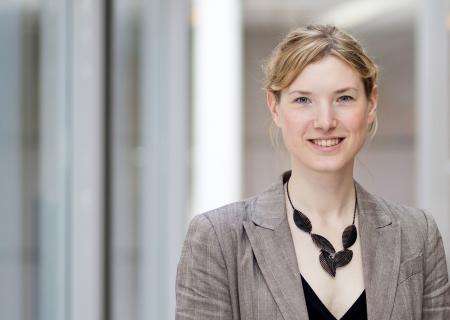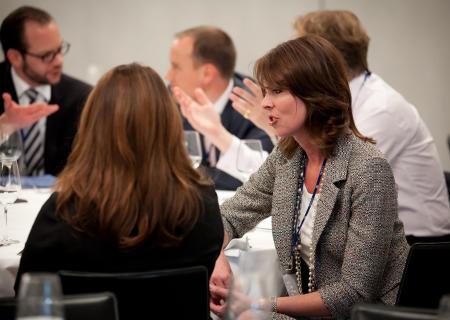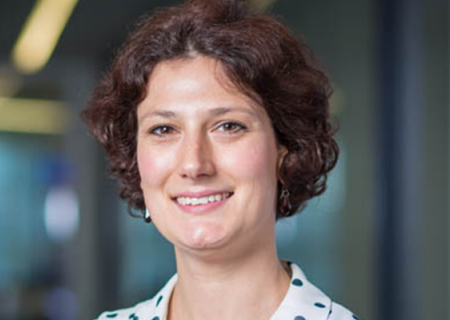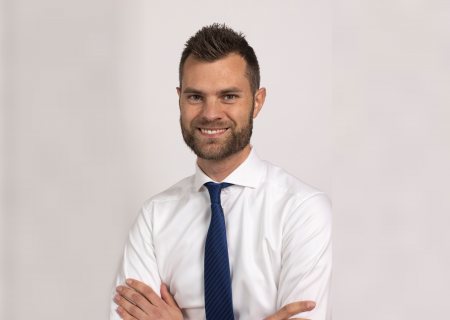Udo Schaffer
Head of Portfolio Management Real Estate, E.ON AG
Udo Schaffer joined the INREV Management Board in April this year. He is a relative newcomer to INREV but his long and distinguished career in the real estate industry will be a gain to the organisation. IQ spoke to him for his views on the challenges facing the non-listed real estate market and how INREV might address them.
One could say that real estate is in Udo Schaffer’s blood. He has been involved in the business ‘man and boy’. He opted for an apprenticeship in the industry while still a student, in the firm knowledge that real estate was where he saw his future: “One of the best things you can do is to go into the real estate industry,” he says.
He started his career in 1985 where he acquired valuable leasing and asset management skills before entering the world of real estate funds in 2000. By 2005 he was Head of Asset and Property Management for Axa Investment Managers Germany, to which he added Managing Director of Axa’s German property management companies in 2006.
But it’s only a question of education. The new Brussels office is a good thing. We have to educate policymakers about the scale of the non-listed real estate sector and explain to members how regulation might affect their businesses, so they can prepare.
Most Dynamic Part
In 2008, Udo moved to E.ON AG as Vice President and Head of Portfolio Management Real Estate. He is currently responsible for the firm’s global real estate investment strategy and portfolio management, which is part of the overall asset allocation to cover its long-term liabilities including pensions. E.ON Group is one of Europe’s largest utility companies.
He sees non-listed as arguably the most dynamic part of the real estate market and has spear-headed E.ON’s significant commitment to the sector; 95% of E.ON’s real estate investments are currently in non-listed spread across more than 50 real estate funds. He is acutely conscious of the changes that have occurred in recent years and the challenges that the industry now faces, but he remains sanguine about its future.
Fitter and Stronger
“Investor appetite for the non-listed sector has yo-yoed over the years. There was significant interest between 2003 and 2007, then everything came tumbling down and demand fell dramatically.” According to Udo, this was an important milestone in investor behaviour. “It took two to three years for things to recover. I’m not sure if we’re really back to normal yet, but there is strong interest again – especially in core products where it’s difficult to find decent opportunities,” he says.
He suggests that the financial crash has forced the industry to learn some critical lessons about transparency and governance.
While some fund managers might have behaved recklessly in the past, they will now have to learn from this and adapt their behaviours. Those that do will get commitments from investors. Those that don’t won’t get back into the market.
He acknowledges that, in the past, there have been tensions and differences between investors and fund managers and poor experiences on both sides. However, he views the global economic turmoil of the last few years as having delivered an opportunity for the non-listed real estate industry to emerge fitter and stronger. There is, says Udo, common ground – fund managers want to make a profit and investors want to protect their investments. Making a virtue of this common ground and smoothing out the differences is the key to helping the industry evolve.
Key Role
For Udo, this is where INREV has a key role to play: “Today there are equal numbers of fund managers and investors on the INREV Management Board. That’s important for harmonising the industry. INREV has a major contribution to make in communicating shared objectives and best practice, like the work it has already done in defining standards and benchmarks – such as the Standard Data Delivery Sheet. These initiatives help to iron out differences in approach and establish consistency and transparency, which are vital for our industry.”
Regulation and the emergence of new products are two further areas on which Udo believes INREV should focus its attention.
Referencing the German finance ministry’s plans to forbid the creation of any new Spezialfonds after 22 July 2013, in the wake of AIFMD, he thinks many investors are unaware of the situation: “A lot of investors don’t know about this,” he says. “But it’s only a question of education. Again, this is an area where INREV should be making a critical contribution. The new Brussels office is a good thing. We have to educate policymakers about the scale of the non-listed real estate sector and explain to members how regulation might affect their businesses, so they can prepare.”
With his recent experience setting up a new segregated account for E.ON, Udo is ideally placed to help the INREV Management Board assess how these and other new types of products should be addressed by the organisation and the industry. It’s a question of knowledge and skills, he says, and not being dazzled.
“Segregated accounts require a more onerous level of reporting. JVs? Well, these have always existed and, going forward, I think largely there will be the same number as before. Debt funds are interesting. We’ve seen a lot of them in the US, but in Europe they’re quite new. Mezzanine debt funds are the really exciting opportunity but I don’t think there will be as many as predicted. With all these products, investors and fund mangers will have to enhance their skills and competence levels. Essentially though, it’s still about transparency, standards and benchmarking and this is what INREV does really well.”
Immediate Objectives
So what of the future? Udo’s view of INREV’s immediate objectives is clear: increase the number of investor members; finalise on-going benchmarking projects; build up relationships with other similar international organisations; continue to improve transparency.
“INREV is a really important organisation and that’s why I agreed to join the Management Board. I think I can help identify areas where we could strengthen standards. I’ll also try and bring some new ideas to the table. Ask me again in a year whether I’ve added any value. For now, I’m delighted to be involved and eager to get on with the job."







